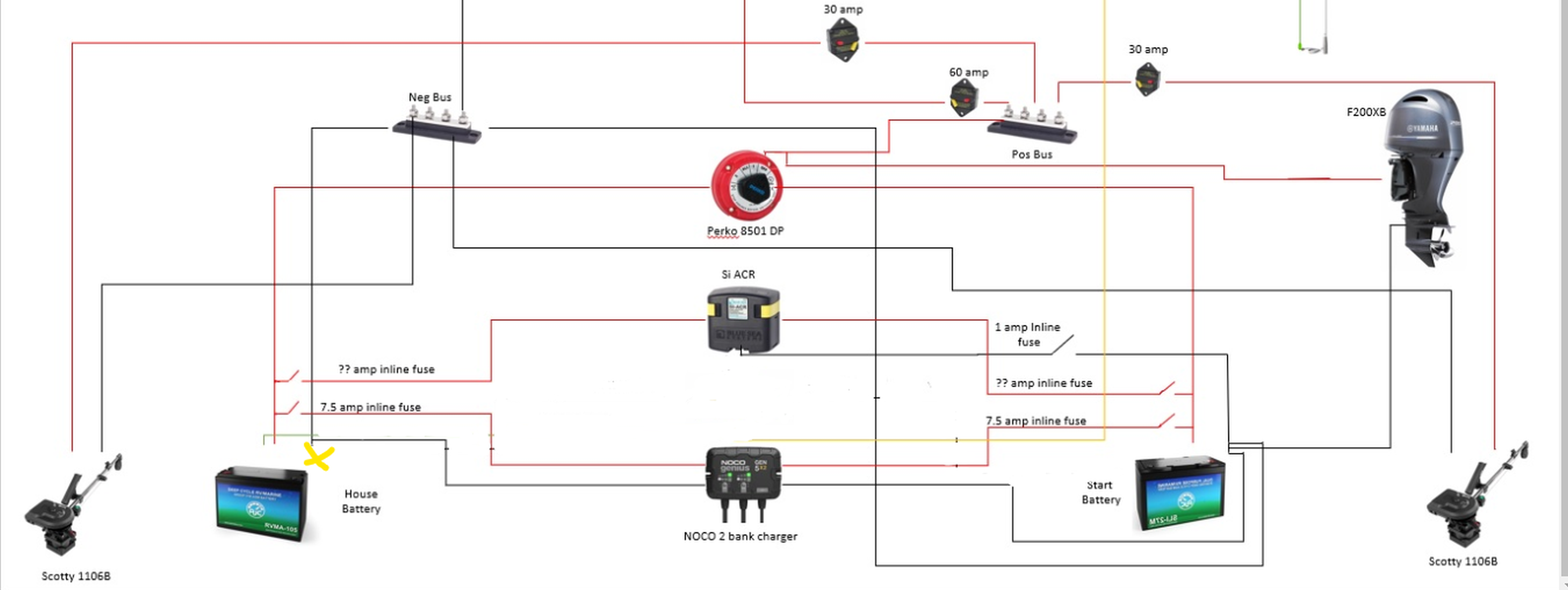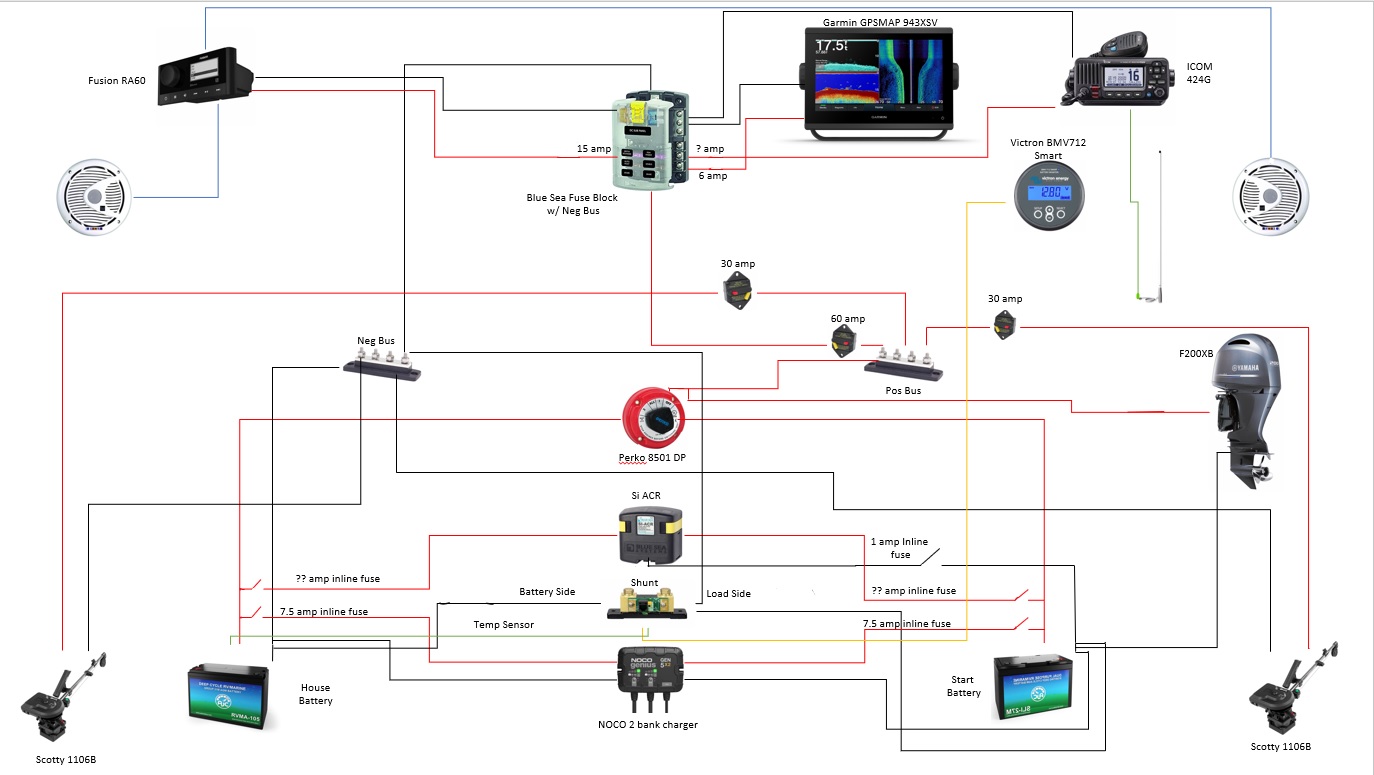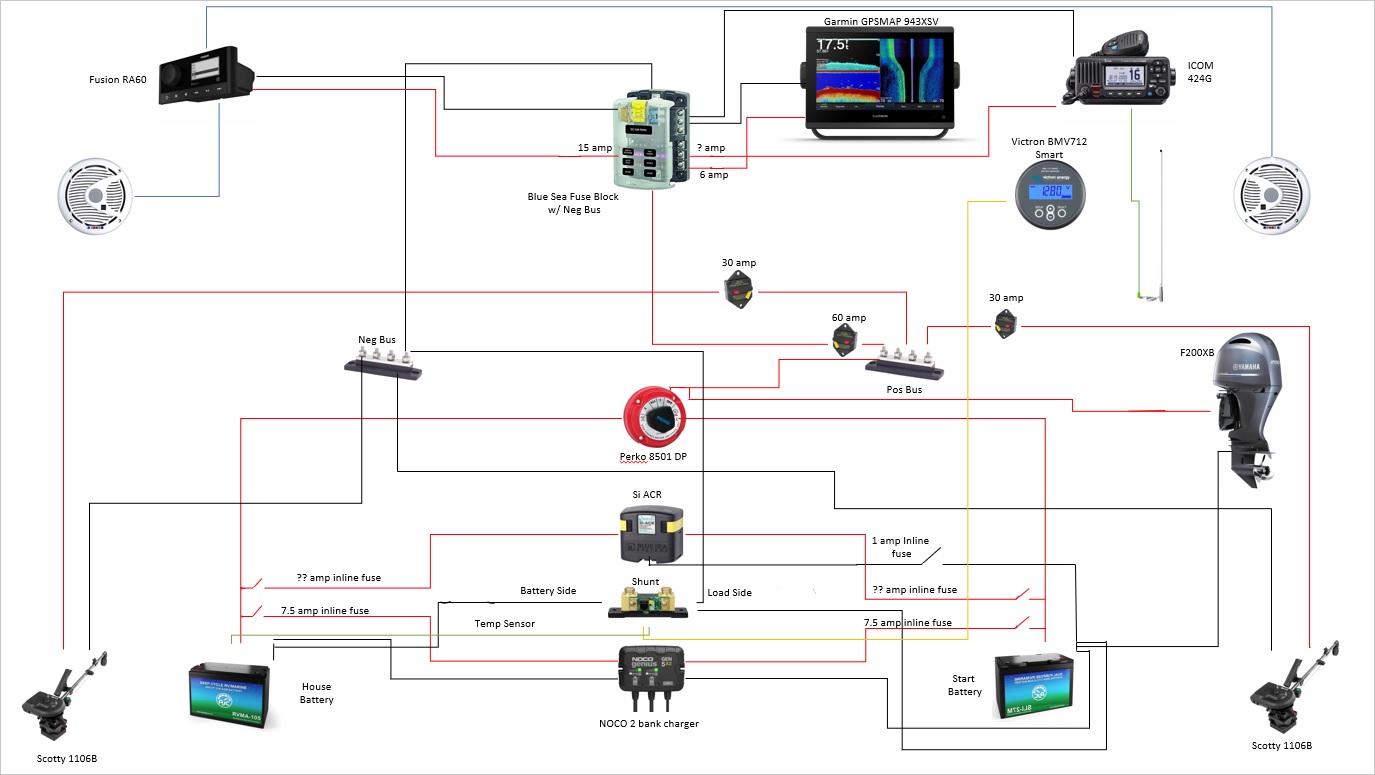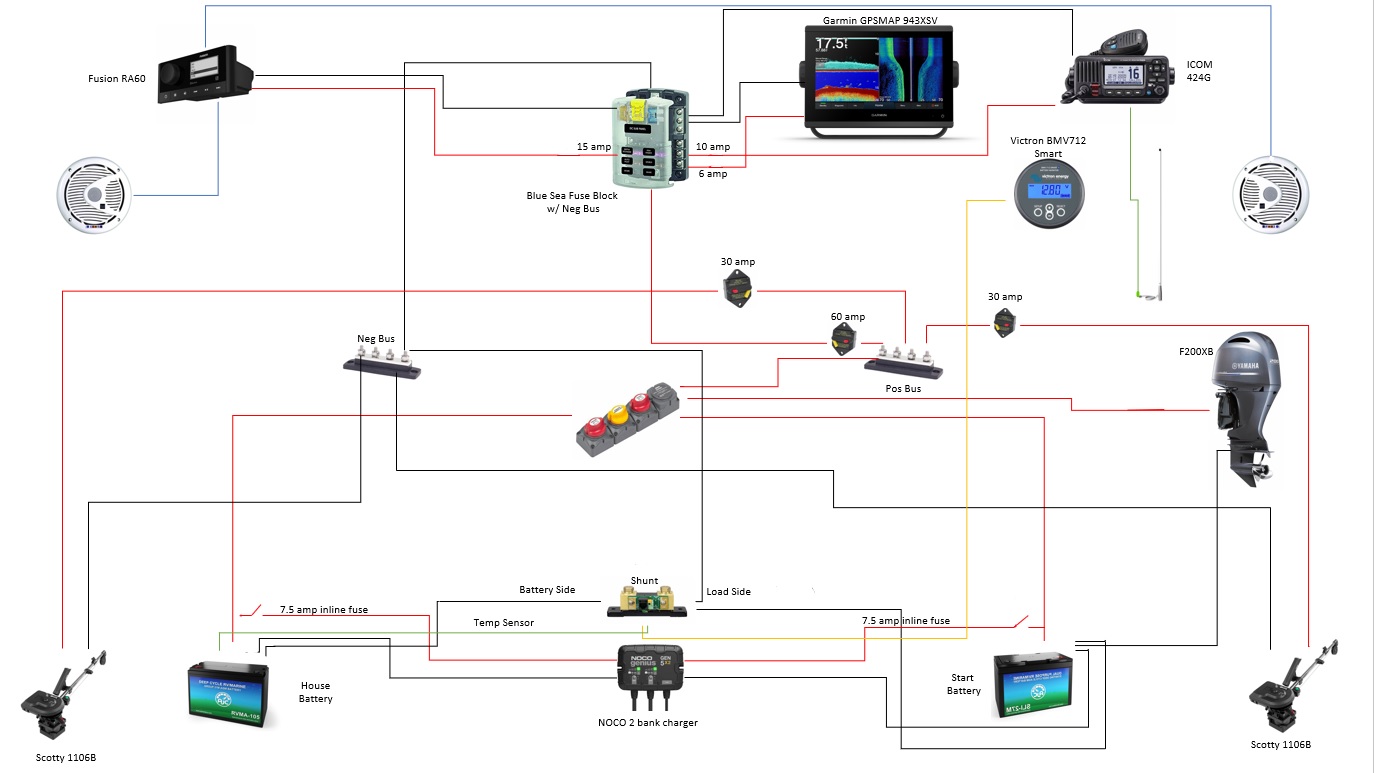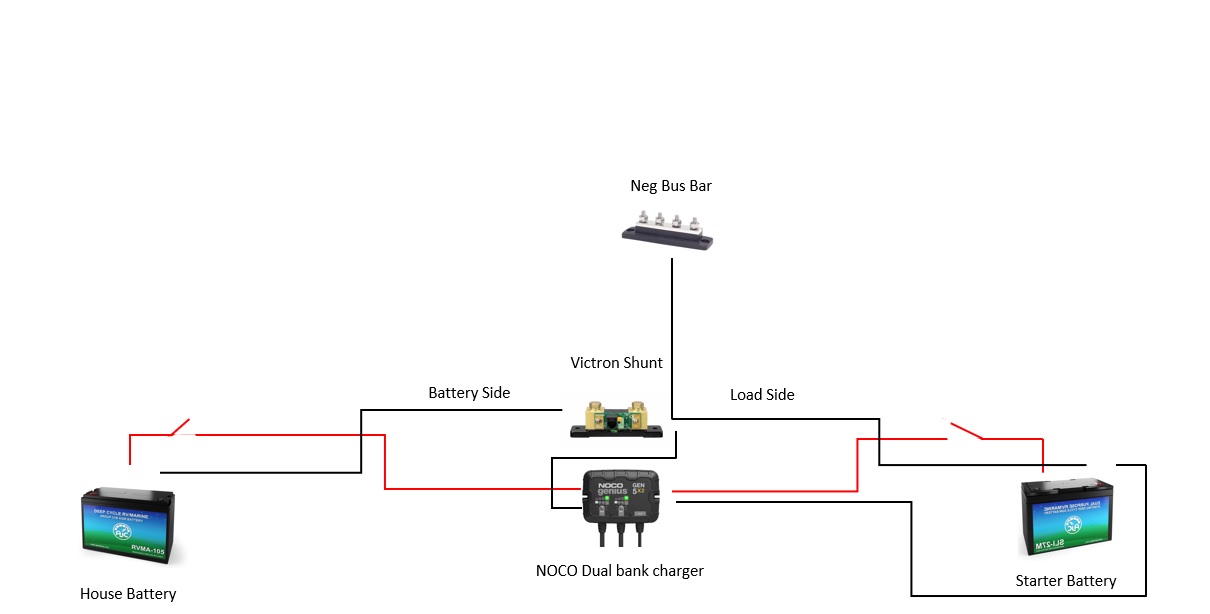Hello,
I have a BMV712 Smart battery monitor and I am trying to connect it to a dual battery setup on my boat. I have the temp sensor version. I am having difficulty interpreting where I should hook the sensor up. Should I have two because I have two batteries? Or prioritize a single battery (which one?) I've attached my schematic for your review. I appreciate any assistance you may be able to provide.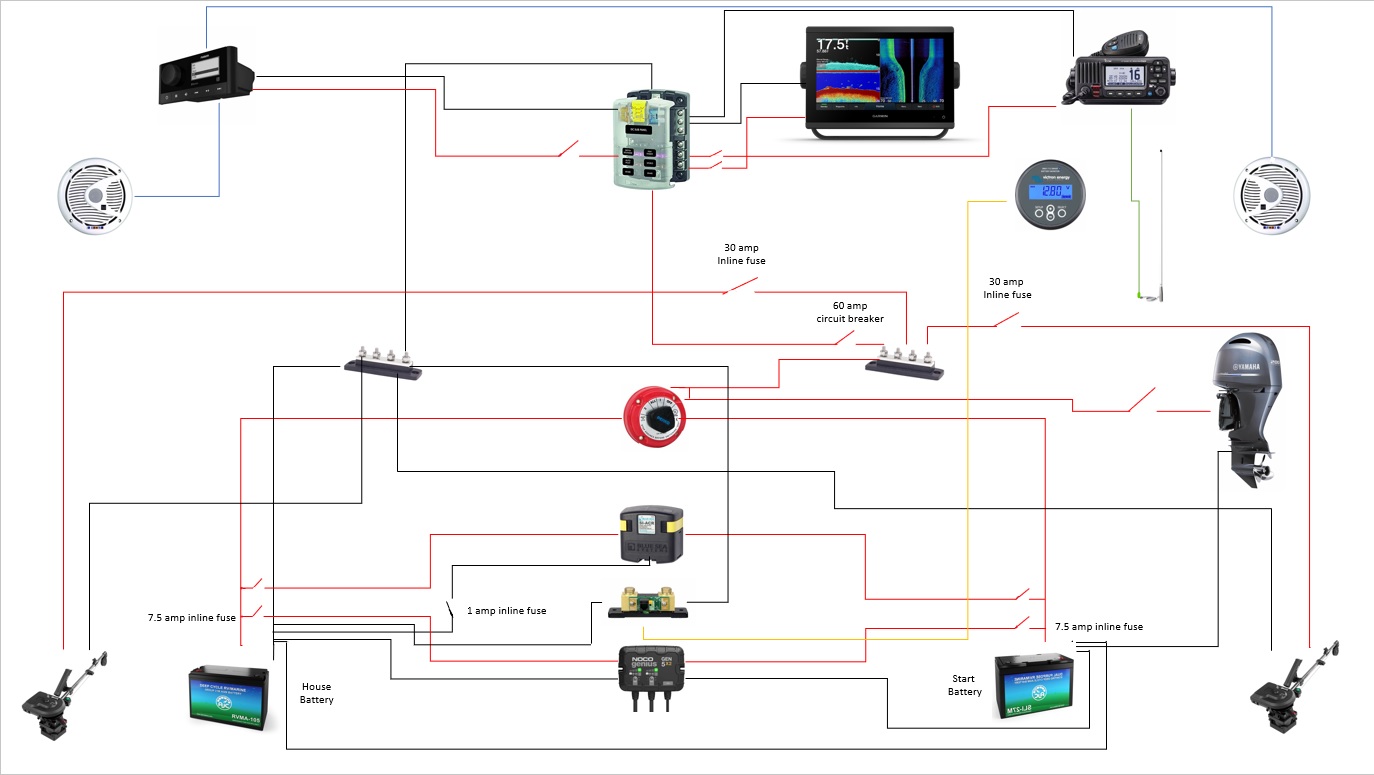

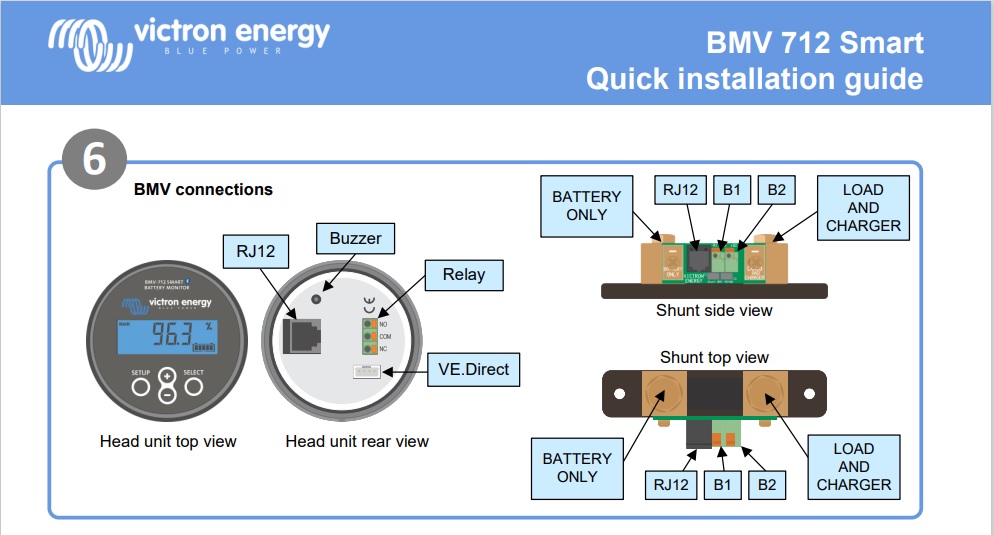 instructions but I had no plan to connect the NOCO charger to the shunt, only to both batteries + and - terminals as per the charger instructions. Is this correct?
instructions but I had no plan to connect the NOCO charger to the shunt, only to both batteries + and - terminals as per the charger instructions. Is this correct?